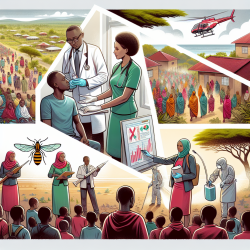The research article titled “It was with my consent since he was providing me with money”: a mixed methods study of adolescent perspectives on peacekeeper-perpetrated sexual exploitation and abuse in the Democratic Republic of Congo provides critical insights into how adolescents perceive interactions between UN peacekeepers and local women and girls. This study is vital for practitioners aiming to enhance their skills in addressing such complex issues.
The Context of the Study
The Democratic Republic of Congo (DRC) has been a site of prolonged conflict, where sexual exploitation and abuse (SEA) by UN peacekeepers have been reported. The study focuses on adolescents aged 13–17, capturing their narratives and perceptions through a mixed-methods approach using SenseMaker, a narrative capture tool. This tool allows participants to share stories and interpret them through a series of questions.
Key Findings
- Poverty as a Catalyst: Adolescents often perceive SEA as a means of financial or material gain due to pervasive poverty. This perception is crucial for practitioners to understand when addressing SEA.
- Transactional Sex: Many adolescents view transactional sex as a survival strategy. Practitioners need to be aware that these interactions may be seen as consensual by the adolescents but are inherently exploitative.
- Protection Misconceptions: Male adolescents often perceive peacekeepers as protectors due to the material benefits they provide. This perception challenges global views on SEA and highlights the need for nuanced intervention strategies.
Implications for Practitioners
The findings from this study offer several implications for practitioners working in contexts similar to the DRC:
- Cultural Sensitivity: Practitioners must approach interventions with cultural sensitivity, understanding the socio-economic contexts that drive perceptions of SEA.
- Education and Awareness: There is a need for educational programs that inform adolescents about the exploitative nature of SEA, emphasizing that such interactions are not protective but harmful.
- Socioeconomic Empowerment: Interventions should focus on empowering women and girls economically to reduce reliance on transactional sex as a survival strategy.
The Role of Further Research
This study underscores the importance of continued research into adolescent perceptions of SEA. Practitioners are encouraged to engage in further research to refine intervention strategies and develop more effective prevention measures.
A Call to Action
The insights from this research highlight the urgent need for comprehensive strategies that address both individual and systemic factors contributing to SEA. Practitioners must collaborate with local communities, international bodies, and other stakeholders to create sustainable solutions that protect vulnerable populations from exploitation.










